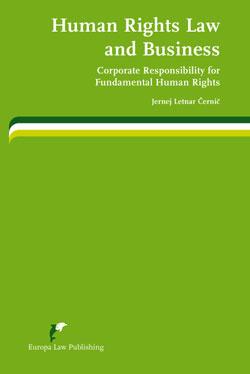
Over the past decades globalisation has stirred a number of positive and negative developments in national and international environments. An important feature of globalisation is the rise of the economic, social, cultural and political power of corporations.
This study argues that the normative thrust of fundamental human rights obligations of corporations derives primarily from national legal orders and secondarily from the international level, whereas both draw their foundations from an international value system. Thirdly, this book argues that corporate human rights obligations may also derive from corporate unilateral commitments.
This book proposes a normative framework of corporate obligations to respect, protect and fulfil fundamental human rights. It employs a holistic approach to corporate responsibility for fundamental human rights, which identifies a three-fold responsibility for corporate human rights violations: corporate, individual and state responsibility. It argues for concurrence between corporate, individual and state responsibility, where possible.
As important as identifying corporate obligations is the question of how one can respond to corporate human rights violations. As international mechanisms are often non-effective, and even non-existent, the provision of effective remedies for victims of corporate human rights violations, this book argues, rests within the national normative frameworks.